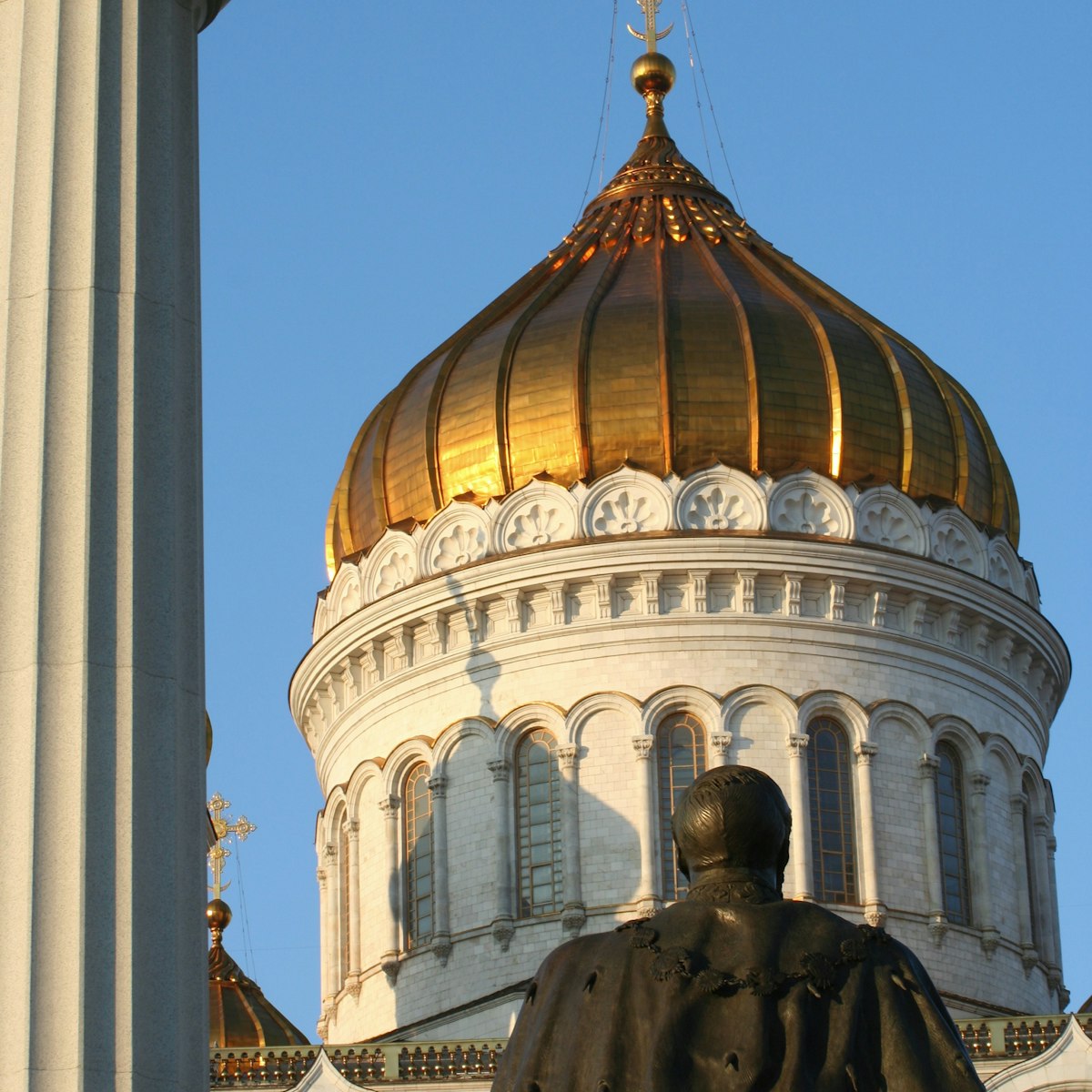The Novodevichy Convent was founded in 1524 to celebrate the taking of Smolensk from Lithuania, an important step in Moscow’s conquest of the old Kyivan Rus lands. The oldest and most dominant building on the grounds is the white Smolensk Cathedral, with a sumptuous interior covered in 16th-century frescoes. Novodevichy is a functioning monastery. Women are advised to cover their heads and shoulders when entering the churches, while men should wear long pants.
From early on, the ‘New Maidens’ Convent’ was a place for women from noble families to retire – some more willingly than others. The convent’s most famous residents included Irina Godunova (wife of Fyodor I and sister of Boris Godunov), Sofia Alekseyevna (half-sister of Peter the Great), and Eudoxia Lopukhina (first wife of Peter the Great).
Enter the convent through the red-and-white Moscow-baroque Transfiguration Gate-Church (Преображенская надвратная церковь), built in the north wall between 1687 and 1689. All of these striking walls and towers, along with many other buildings on the grounds, were rebuilt around this time, under the direction of Sofia Alekseyevna. The elaborate bell tower (Колокольня) against the east wall soars 72m over the rest of the monastery. When it was built in 1690 it was one of the tallest towers in Moscow (second only to the Ivan the Great Bell Tower in the Kremlin).
The centrepiece of the monastery is the white Smolensk Cathedral (Смоленский собор), built from 1524 to 1525 to house the precious Our Lady of Smolensk icon. Previously surrounded by four smaller chapels, the floor plan was modelled after the Assumption Cathedral in the Kremlin. The sumptuous interior is covered in 16th-century frescoes, which are considered to be among the finest in the city. The huge gilded iconostasis – donated by Sofia in 1685 – includes icons that date from the time of Boris Godunov. The icons on the fifth tier are attributed to 17th-century artists Simeon Ushakov and Fyodor Zubov. The tombs of Sofia, a couple of her sisters, and Eudoxia Lopukhina are in the south nave.
Sofia Alekseyevna used the convent as a residence when she ruled Russia as regent in the 1680s. During her rule, she rebuilt the convent to her liking – which was fortunate, as she was later confined here when Peter the Great came of age. After being implicated in the Streltsy rebellion, she was imprisoned here for life, primarily inhabiting the Pond Tower (Напрудная башня). Sofia was later joined in her enforced retirement by Eudoxia Lopukhina who stayed in the Chambers of Eudoxia Lopukhina (Лопухинские Палаты).








